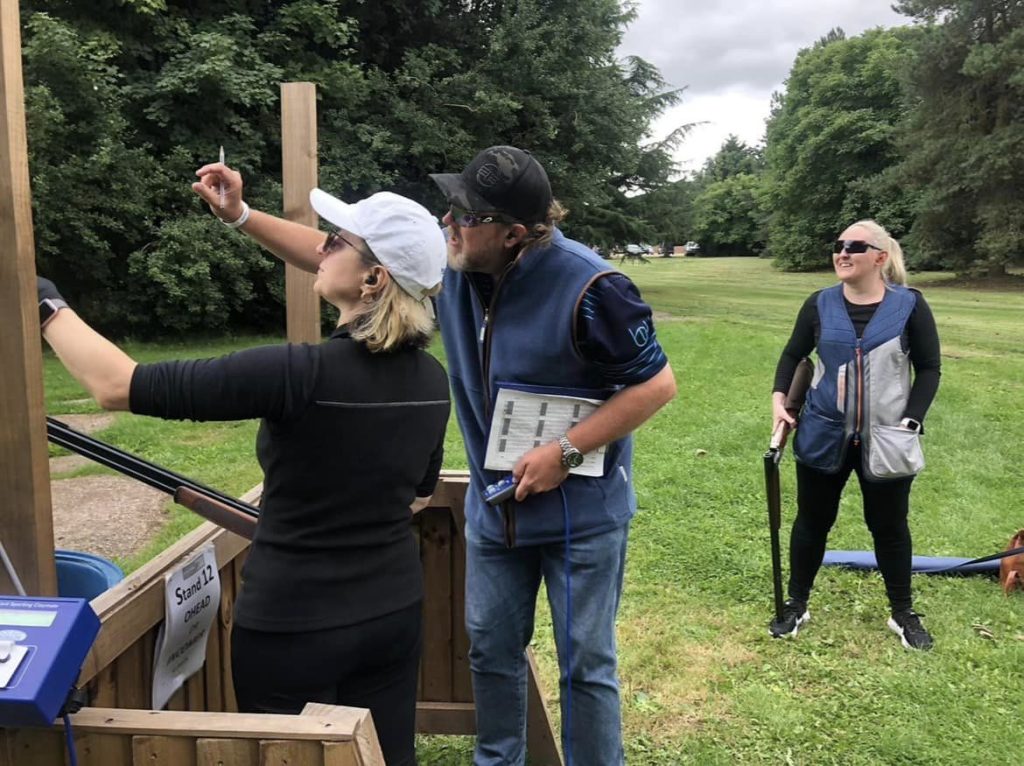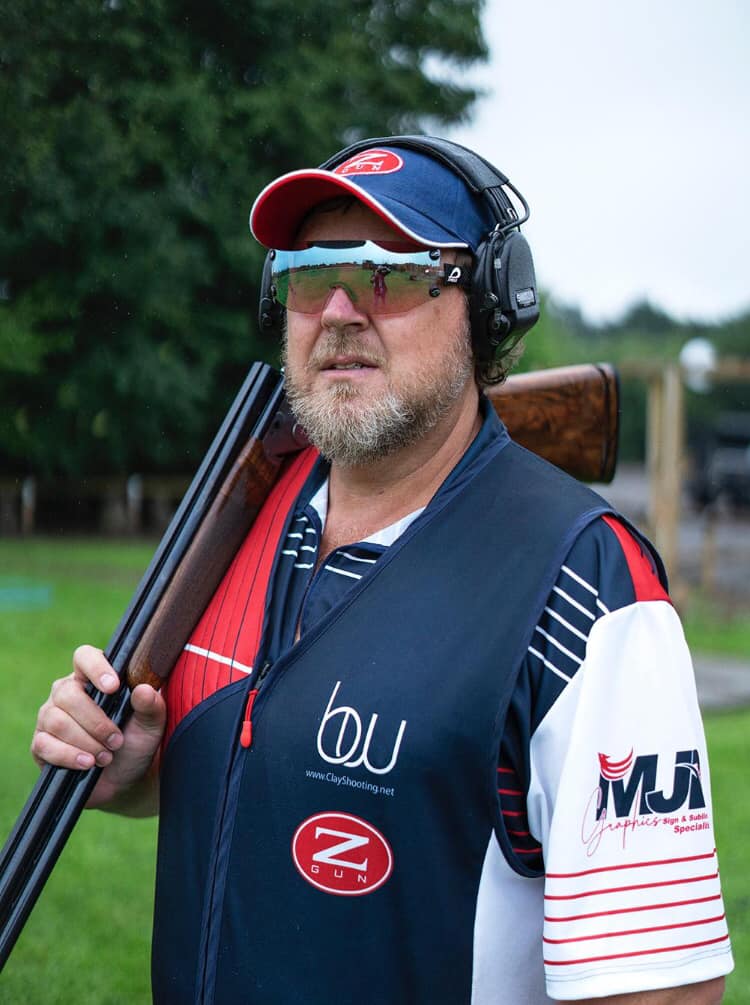A good shooting instructor possesses a combination of skills, knowledge, and qualities that contribute to effective teaching and the development of a shooter’s abilities. Whether you’re new to clay shooting or looking to improve your existing skills, having the right instructor can make a world of difference.
If you’re ready to begin your journey, contact BW Clay Shooting today to book a lesson with one of our expert instructors.
So, what exactly makes a shooting instructor great? Here are the key attributes to look out for when making your decision:
1. Why Safety is Essential in Shooting Lessons
When it comes to shooting, prioritising safety is non-negotiable. A good instructor won’t just teach you the rules but will help you understand why safety is so critical. Right from your very first lesson, they’ll instil best practices to ensure you’re always operating safely, whether you’re at the range or in the field. With the right instructor, safety becomes second nature, something you practice without even thinking about it.
2. Real Shooting Expertise
You want an instructor who knows their stuff, inside and out. Whether you’re learning to shoot clays or improving your field game, an expert instructor will have the depth of knowledge to guide you properly. They’ll have in-depth knowledge of firearms, shooting techniques, safety protocols, and all relevant regulations, while also possessing a comprehensive understanding of the discipline.
For beginners, this means learning the right way from day one. For more experienced shooters, it’s about correcting those small, unnoticed habits that might be holding you back.
3. Adapting to Different Shooting Styles
No two students are the same, and a skilled instructor understands that. The best shooting instructors adapt their teaching style to match how you learn. Some shooters thrive on visual demonstrations, while others prefer hands-on practice or detailed explanations.
A skilled instructor should be able to modify their teaching methods to suit your preferences and abilities, working out what works best for you and tailoring each session accordingly. In group settings, this becomes even more important to ensure everyone progresses at their own pace.
4. Communication That Clicks
Clear and effective communication is crucial, and a good instructor should be able to explain concepts, techniques and safety guidelines in a way that’s easily understood regardless of your experience.
Shooting techniques can sometimes feel overwhelming, but a skilled coach breaks everything down into manageable steps. And it’s not just about telling you what to do – it’s about making sure you understand why you’re doing it.
For beginners, this might involve walking through the fundamentals step-by-step. For more advanced shooters, targeted, concise feedback helps refine technique without overloading you with information.
5. Patience in Practice
Patience is a virtue when it comes to working with individuals with different skill levels. Progress doesn’t always come quickly, and a patient instructor knows how to keep you motivated, even on the tougher days. They’ll stick with you through challenges and frustrations, offering calm and steady guidance no matter how slowly or quickly you advance.
Whether you’re struggling to master a specific skill or working on consistency, patience from your instructor helps keep the experience positive.
6. A Keen Eye for Detail
One of the most important skills a shooting instructor can have is the ability to spot the small things that make a big difference. From your stance and grip to the way you time your shots, a good instructor will observe your form closely and offer constructive feedback. Sometimes, a minor tweak is all you need to improve accuracy or efficiency.
The ability to observe a shooter’s form, technique and habits is critical when it comes to offering constructive feedback. A great instructor will be able to easily identify your areas for improvement and give guidance on how to take your performance to the next level.
7. Encouragement That Keeps You Going
We all have off days. Sometimes, you might feel like you’re not improving as quickly as you’d hoped. An effective instructor knows encouragement and motivation play a key role in the learning process, reminding you of the progress you’ve made, keeping you focused on your goals, and helping you push through any obstacles.
An instructor that really knows their craft understands how to inspire and motivate their students to overcome challenges, set new goals and continuously improve their shooting skills.
8. Professionalism and Respect
As with all learning, professional conduct, punctuality, reliability and a respectful attitude is essential. It sets the tone for your learning experience –
whether you’re in a private lesson or part of a group – and ensures you get the most out of each session.
A respectful instructor creates a learning environment where you feel valued, supported, and able to focus on improving your skills.
9. Empathy for New Shooters
For many beginners, shooting can feel intimidating. A great instructor appreciates and validates your fears, concerns and uncertainties from your first session, creating an environment where you feel at ease.
Whether you’re nervous about handling a firearm for the first time or just worried about getting it right, an empathetic instructor makes the experience enjoyable and stress-free. By recognising your concerns, they ensure that you’re comfortable, allowing you to focus on learning and improving at your own pace.
10. Shooting Experience That Speaks Volumes
Practical experience in shooting and teaching contributes to an instructor’s credibility. An instructor who’s spent years honing their craft brings a wealth of knowledge that goes beyond just technique. They’ve seen it all – from nervous first-timers to advanced shooters looking to perfect their form.
This experience means they can offer insights that help you avoid common pitfalls and fast-track your learning. A seasoned instructor draws from real-world experience to give you advice that makes a tangible difference.
11. Always Learning
Shooting is constantly evolving. A great instructor stays up to date with all the latest developments, shooting techniques, equipment and safety measures, ensuring that you’re learning the most effective and up-to-date methods. By staying informed, they ensure that what they teach you is relevant and applicable, no matter what level you’re at.
Conclusion
The right instructor combines expertise, communication, patience, and a genuine passion for helping you improve. Whether you’re just starting your shooting journey or looking to perfect your skills, having the right guidance is key to achieving your goals.
Ready to Elevate Your Shooting Skills?
If you’re looking for shooting lessons in Staffordshire or beyond, don’t hesitate to get in touch – with a national list of partners, I’ll happily arrange your clay shooting lessons at a reputable ground in your area.
Locations
BW Clay Shooting provides shooting lessons throughout the week at various locations across the Midlands, including:
- Orston Shooting Ground
- Doveridge Clay Sports Club
- Oakedge Shooting Ground
- Catton Hall Clay Shooting
- Kibworth Shooting Ground
- Sporting Targets Limited
- Ian Coley Shooting School
- Mickley Hall Shooting School
- Barbury Shooting School
- Honesberie Shooting Ground
- EJ Churchills Shooting Ground
- Lea Marston Shooting Club


